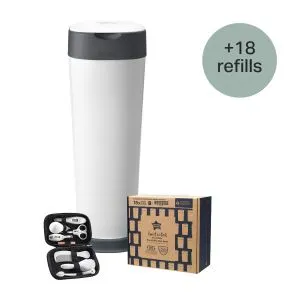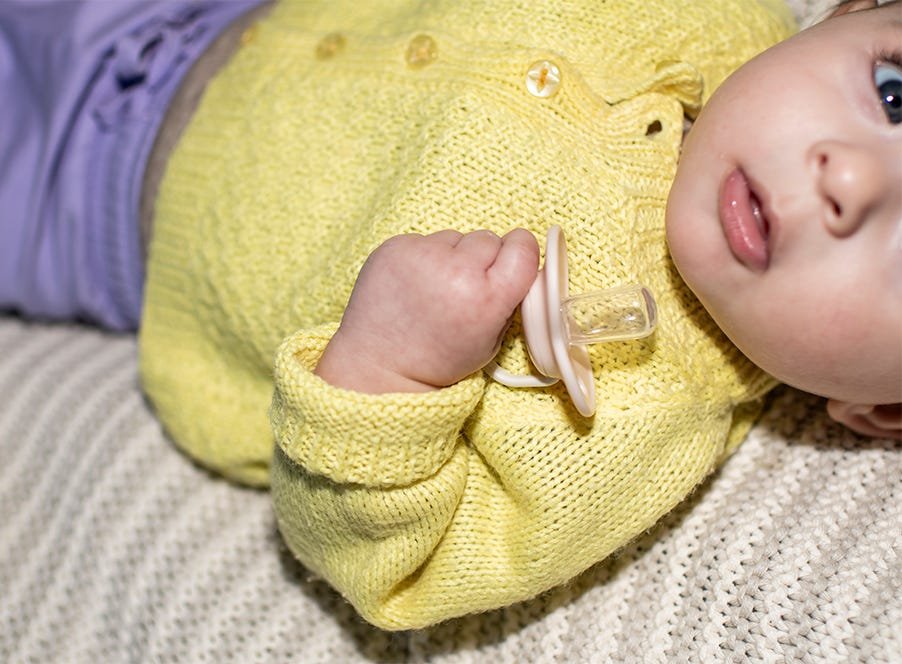
Ultimate XL Nappy Disposal Bundle with 18 Refills
Bundle & Save 40%
Subscription orders can be cancelled at anytime. Free delivery on all subsequent subscription orders. Find out more about subscriptions.
They’re easy and fuss free
Your products are automatically sent to you
You save up to 10% when you sign up for a subscription
You can cancel at any time

Although it's common and usually harmless, nasal congestion in babies is uncomfortable and therefore stressful for their parents. Don't worry too much though, there're plenty of things you can do to help relieve your baby's nasal congestion at home when they're feeling a little under the weather.
We're here to help you understand what causes nasal congestion in babies, how you can help clear it, and when you should seek help from a doctor.
Nasal congestion is caused by swelling and the presence of excess mucus in a baby's nose.
If your little one has a blocked nose, they may have picked up a common cold or a respiratory infection like the flu.
Sometimes it's caused by an allergy which needs specific medical treatment, but mostly, nasal congestion happens because of mucus build-up in a baby's tiny nose. This can cause them discomfort as they haven't learned how to clear their nasal passages yet.
If a baby is experiencing a blocked, stuffy nose, you may notice some other symptoms such as...
Commonly, nasal congestion in babies and toddlers will clear up on its own in five to seven days, but it can sometimes last for up to two or three weeks.
If it's caused by an allergy, their nasal congestion can last for months at a time. In this case, it's best to speak to your doctor as soon as possible.
First things first, you may find that your baby's congestion seems worse at night when they're lying on their back, but don't be tempted to put them down to sleep propped up or on their side. You should always put your baby to sleep on their back, even when they've got a blocked nose.
Before they go to sleep and during the day, there are a few different ways to relieve your baby's congestion at home. These include...
As with all aspects of bringing up a baby, it's best to trust your parental instinct when it comes to nasal congestion. If your baby is happy and feeding normally, there's usually no need to seek medical help. Just try and keep their nose as clear as possible at home.
But, if the congestion is severe or lasts for a long time or you're worried about your little one's ability to breathe, don't hesitate to speak to your doctor. They will be able to provide an expert diagnosis and prescribe medication if it's needed.
Explore the Range